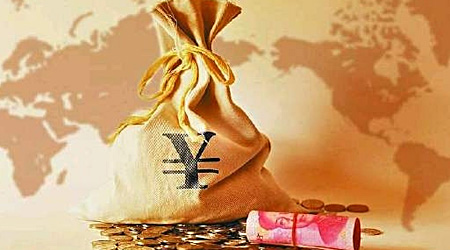On August 11, the People’s Bank of China (PBOC) announced that, in the future, the offer prices reported to it by market determiners should be based on the closing parity rate of the market on the previous day. At the same time, the China’s central bank lowered the central parity rate by 1.9 per cent.

The depreciation sent a shockwave around the globe. Many foreign commentators feared that the bank has embarked on a course of devaluation to boost China’s exports, which in turn could set off a new round of currency wars.
This worry is understandable but unwarranted. As pointed out by the vice-governor of the PBOC, Yi Gang, “We do not need to devalue the RMB to promote exports.” There are many reasons to believe this is true. First, China knows well that currency wars are self-defeating. During the Asian Financial Crisis, China’s economic situation was much worse, but China resisted the temptation to devalue the RMB. Even without resorting to devaluation, China was able to come out of the crisis unscathed. Second, China is very serious about shifting the growth mode from investment-export driven to domestic consumption driven. China is still running large trade surplus; the negative impact on China’s economy from a further narrowing in trade surplus can and should be offset by an increase in domestic demand in general, and domestic consumption in particular. Third, as the largest trade nation in the world, China’s share of exports in global exports has already surpassed 12 per cent. It will be very difficult indeed for China to expand its share further without worsening its terms of trade greatly. Fourth, due to China’s special position in processing trade and global value chains of production, it is difficult to assess how effective devaluation would be in increasing China’s trade surplus. Finally, China is not only a trading nation but also a nation with huge overseas financial assets and liabilities. The foreign borrowing from non-financial Chinese corporations’ can be as high as $1 trillion. Any large devaluation will correspondingly increase the Chinese firms’ debt burden in RMB terms, which will lead to a large number of bankruptcies, and a dramatic increase in nonperforming loans. Hence, China’s avoidance of getting involved in competitive devaluation is not only the responsibility of China as a major global power, but also in its own self-interest.
In my view, the purpose behind the bank’s Aug 11 action is twofold. First, loosening PBOC’s grip on the RMB exchange rate allows the market to play a more important role in determining the exchange rate. Second, it narrows the gap between the official exchange rate and the exchange rate implied by market supply and demand. Since the turn of the century, the United States and other major industrial countries have been pushing China to allow the market to determine the RMB exchange-rate regime. Now that China has made an effort towards this direction, resulting in RMB depreciation, is it legitimate for them to complain?
Now, China is more willing than before to carry out such a reform for various reasons. The Aug 11 depreciation is an important landmark in China’s long-overdue reform of its exchange-rate regime. However, I guess, due to the fact that the RMB depreciation pressure is so strong, if the PBOC let the market makers determine the central parity rate without intervention, the original planned one-off adjustment of the RMB exchange rate could morph into a rout, which is not a prospect the PBOC is ready to face. As a result, after testing the water just for two days, the PBOC retreated and told the market that the devaluation was just 3 percent and no more. Because the PBOC has enough ammunition to stabilize the exchange rate and the market also believes so, the exchange rate rebounded duly and calm returned to the market.
The episode has ended. However, the dramatic fall in the RMB exchange rate from Aug 11 to 13 shows that the era of one-way appreciation of the RMB has ended. In the future, because of China’s capital account liberalization and RMB internationalization, the RMB exchange rate will become more volatile. It is very likely that because growth of the Chinese economy will continue to weaken, the PBOC will have to loosen monetary policy further. At the same time, the U.S. Federal Reserve will exit quantitative easing gradually. As a result, in the foreseeable future, the RMB is more likely to depreciate than to appreciate.
For the Chinese monetary authorities, how to allow the market to determine the RMB exchange rate, while preventing the depreciation from sparking a rout, is a serious challenge. For the rest of world, being able to cheer China on to relax the RMB exchange rate, while watching RMB depreciation in a quiet manner, is an equally serious challenge. Hopefully, neither side will fail the tests.



